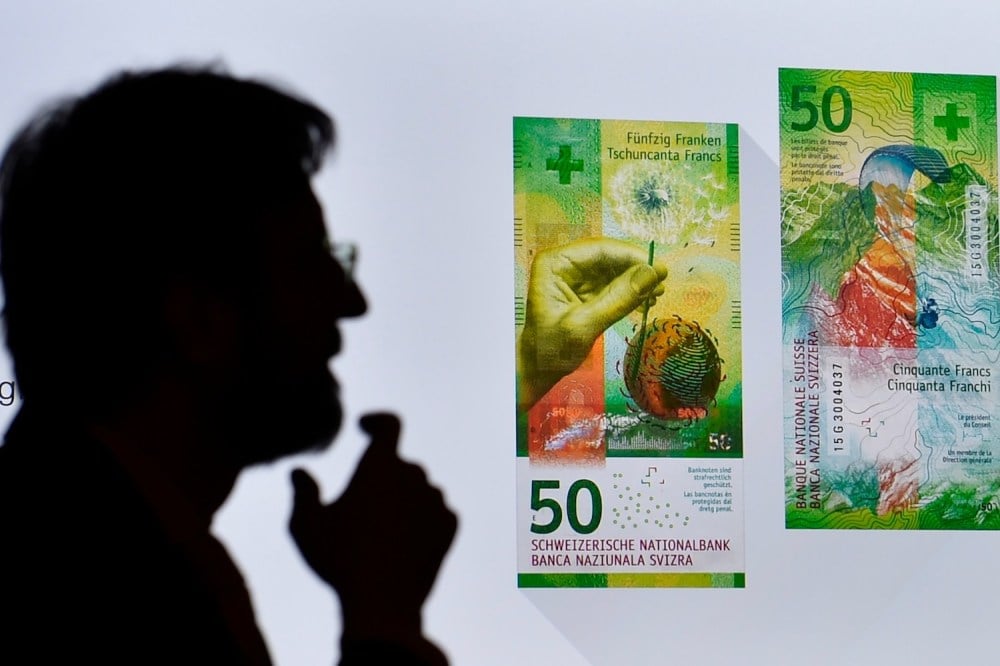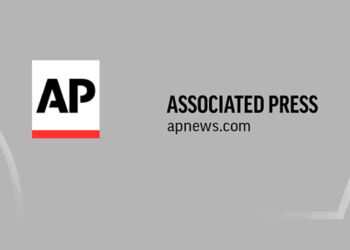It should have been a match made in heaven: Switzerland refines a third of the world’s gold supply; U.S. President Donald Trump, in his first six months in office, has plated the West Wing in gilded figurines, frames, Rococo mirrors—and even furnished a golden TV remote.
As recently as February, furthermore, you could find Switzerland’s Euroskeptic government praising the Trump administration’s populist rhetoric at the Munich Security Conference, where current President Karin Keller-Sutter, deemed U.S. Vice President J.D. Vance’s alliance-shattering speech “very Swiss.”
Unluckily for Switzerland, the romance looks to remain unrequited. The chance for mutual admiration ended abruptly on Aug. 1, when the Trump administration levied a shocking 39 percent tariff rate against Swiss exports, more than twice the 15 percent negotiated by the European Union earlier this summer, and surpassed only by the 40 percent targeted at countries like Laos, Myanmar, and Syria.
The mood among watchmakers, reported the Zürich-based newspaper NZZ, was one of “total catastrophe.” The Swiss government, in which Keller-Sutter’s right-leaning Swiss People’s Party currently holds a legislative majority, was blindsided. The alpine nation has become the latest object lesson in the pitfalls of going it alone in an unpredictable, geopolitically fractious moment.
There are multiple levels of irony at work in Switzerland’s misfortune. After Trump took office, gold exports to the United States soared as investors attempted to insulate themselves from the market chaos of the coming trade wars. The gold rush, driven by Trump’s own erraticism, artificially inflated the trade deficit to what the administration claimed to be a $40 billion high—a questionable number that excludes trade in services. (Trump’s deficit calculations exclude trade in services for all countries, but in Switzerland’s case, the inclusion would reduces the gap to $9 billion.) This $40 billion was used to compute the 39 percent rate, even though the financial gold trade contributes only negligibly to the GDP of either nation.
But there are other reasons Switzerland found itself uniquely vulnerable to tariffs, and to the isolationist impulses that lie behind them.
Switzerland is one of the most export-dependent economies in Europe, with outgoing trade accounting for over 70 percent of GDP, well above the global average of 30 percent. Its export dependency is due to its small domestic population and, consequently, an aggressive pursuit of trade agreements that guarantee access to foreign markets. Its highly-educated and global population, furthermore, allows it to focus on producing goods with high-value add, such as pharmaceuticals, industrial chemicals, and, of course, its famous watches.
While the European Union is by far Switzerland’s largest trading partner by volume, accounting for over half of all exports, the United States, with its 18 percent share, is a close second—and in 2021 became Switzerland’s top export market for goods. Until recently, robust trade relations with the United States were seen as a fallback option, a way of diversifying Switzerland’s dependence on the EU and justifying its longstanding decision to keep aloof of EU-based market rules and regulations.
That dynamic has suddenly reversed.
For the past decade, closer integration with the European Union has remained an extremely fraught topic in Switzerland, serving as a third rail in domestic politics. The small, wealthy country prizes its sovereignty, fears a creeping bureaucracy that could curtail its own ability to attract foreign investment, and values state subsidies incompatible with membership to the European Economic Area. The most recent round of bilateral negotiations, concluded in December last year, led to contentious and taxing domestic debates, especially over immigration. In October 2024, just 37 percent of the population felt relations with the EU ought to be closer.
The blow of the tariffs, however, has suddenly made the prospect of aligning with Brussels much more attractive. Once a point of pride, Switzerland’s historic aloofness to the European project suddenly looks like its greatest liability.
Among those who have long argued for a cozier relationship with Europe is Cédric Wermuth, co-leader of the center-left Social Democratic Party. Long a minority position, it has suddenly “become pretty obvious that maintaining the sovereignty of Switzerland does mean having more integration to the European project,” he said.
EU integration doesn’t necessarily mean membership, nor even—the ultimate taboo—integrating commercial markets. Yet closer alignment in less contested sectors like security and energy would have made it easier to argue that the Swiss ought to be treated no differently from the European market when it comes to tariffs.
The uncertain geopolitical environment, furthermore, will extend far beyond the immediate horizon of tariff negotiations, demanding tactical adjustments for the long haul. In a world where the liberal legal order has broken down, small states pay the price. “We must find a way of coordinating like-minded states and blocs to try to construct some kind of new alliance against this authoritarian drawback that we don’t only see, of course, in the U.S. It’s also in Moscow, Bejing, it’s in Delhi,” Wermuth said. “The only thing that is left is quite obviously Brussels.”
Simon Evenett, a professor of geopolitics and strategy at the International Institute for Management Development in Lausanne, agreed that Switzerland was uniquely vulnerable to the tariffs but pointed to different causes. Rather than seeking to integrate with the EU or similarly bureaucratic blocs, countries should learn to better interpret the signals coming out of Washington—and update their negotiating strategies accordingly.
The tariffs, for example, were never about trade negotiations, he said, but geopolitical positioning used to promote American priorities. From this view, Switzerland’s recent free trade agreement with China, for example, due to take effect this year, or its low levels of investment in the United States compared to the EU, are vulnerabilities. Says Evenett, “The Swiss probably thought in more legalistic terms that this was a trade deal which would stick rather than a truce, which just puts tariffs in place until the U.S. president decides to change them again.”
As for rushing into relations with the EU, post-Brexit U.K. negotiated 10 percent to the EU’s 15 percent. “We should not let the advocates of joining forces with the EU rewrite history here,” he said.
The immediate outlook for the Swiss economy is less doomsday than the initial media frenzy suggested. There’s reason to expect the tariffs will be reduced in further rounds of negotiations late this year or early next. Gold has already been exempt; pharmaceuticals were never included, though the industry faces separate negotiations on drug pricing. (In anticipation, Swiss-based pharma giants Roche and Novartis have collectively pledged nearly $75 billion in investments in U.S.-based production sites.)
As for luxury goods like Rolex watches, elite customers are more likely to accept higher prices, which may even increase their allure.
The remaining sectors exposed to tariffs—namely machinery, Nespresso pods, and medical devices—pose more limited damage to the Swiss economy. The estimated contraction to GDP currently stands at 0.3 percent to 0.6 percent.
“I suspect at the end of the year we will look at this as a bad year for Swiss trade, but not a catastrophic year,” Evenett said.
Still, the shock of the tariffs has been a much greater blow to national pride and identity and will require long-term soul-searching about how Switzerland wants to conduct itself in a geopolitically fractured world. Conservative factions like the Swiss People’s Party have long held an affinity for the United States. For them, the tariffs strike at a fundamental ideological kinship.
“There is a very special, let’s say, historical feeling in Switzerland that we consider ourselves kind of a sister republic of the United States of America,” Wermuth explained. “It’s a very fundamental shock, at least for conservative and right-wing politicians, to be kind of disappointed by the sister republic. And that’s something that goes into the very heart of Swiss identity.” He added: “That’s part of why we always saw ourselves as kind of the Americans in Europe, not being European.”
The geopolitics of the “America First” era prove that, among isolationists, such ideological affinities are rarely reciprocated. Every country would like to put its own preferences first. But in a world without compromise, going it alone means adopting the preferences of the strong.
The post Switzerland Is Having an Economic Identity Crisis appeared first on Foreign Policy.




